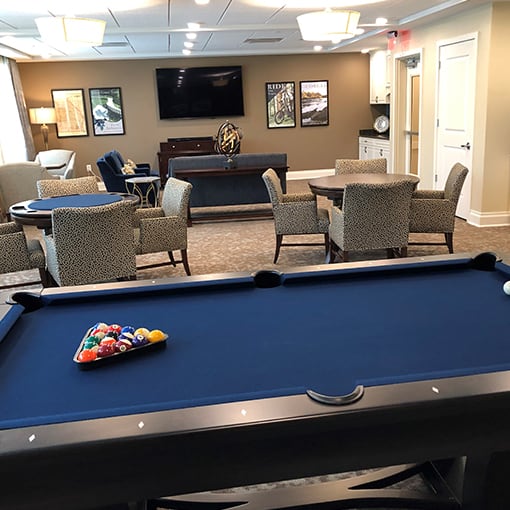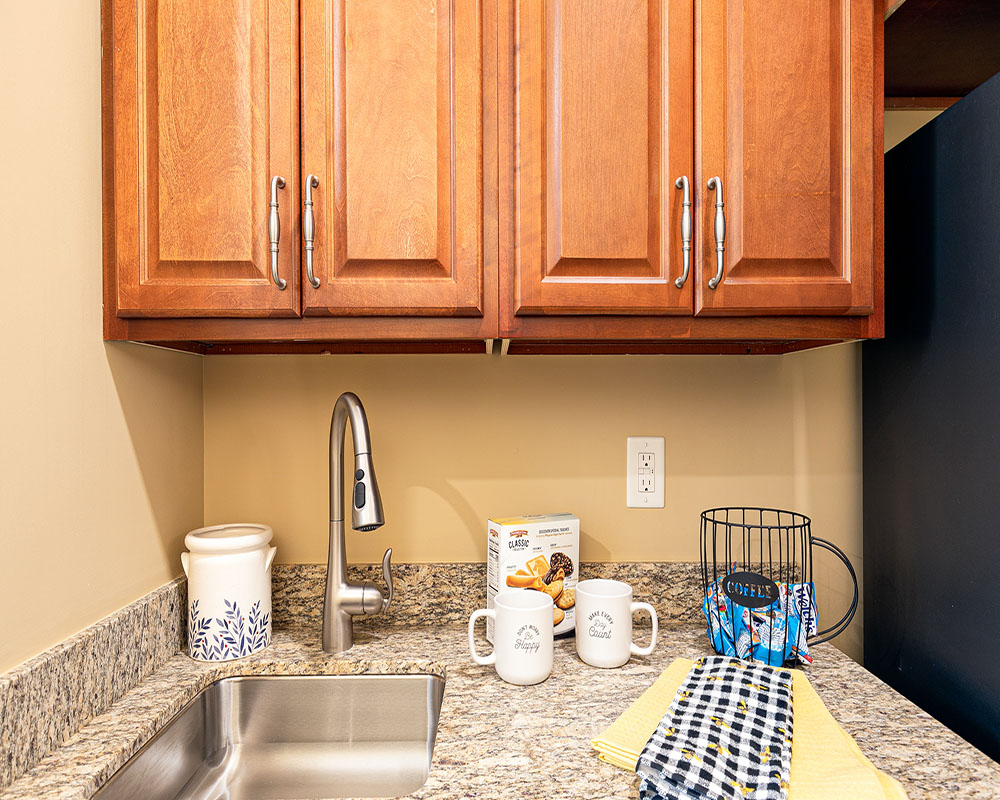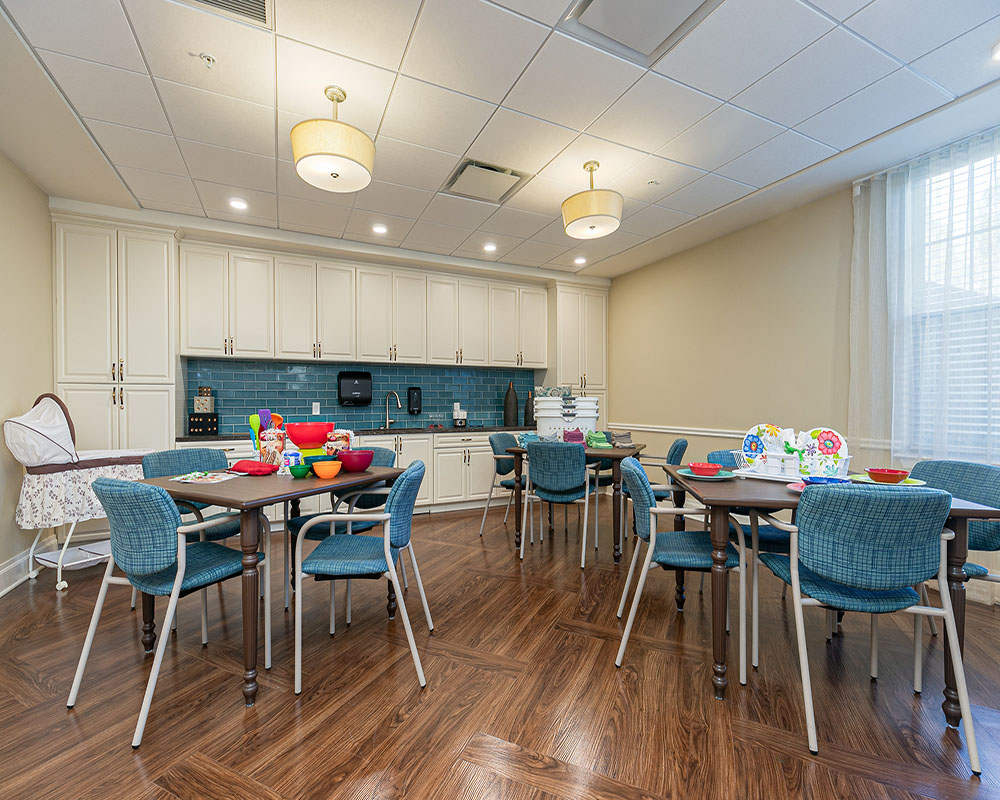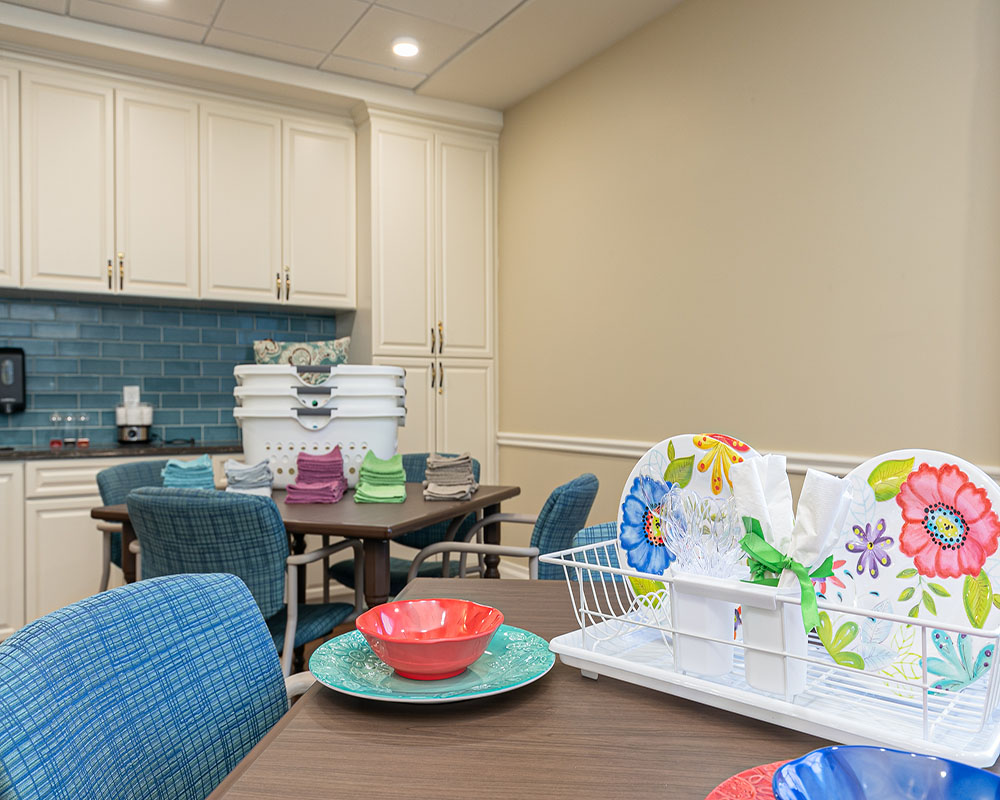Dementia is well-known for causing communication challenges. However, staying in touch is key when you have a loved one living in memory care. Whether you’re visiting in person, arranging a video chat, or talking on the phone, this connection and communication matters more than you might think.
When talking to a loved one with dementia on the phone, try to:
- Be prepared
- Practice patience
- Stay positive
- Talk slowly
- Use simple language
- Avoid correcting them
These steps can make a significant difference!
how dementia affects communication
Dementia, a group of complex symptoms that primarily affect the brain, is about much more than forgetfulness or cognitive changes. This is an extremely complicated condition that affects the brain structure itself.
As dementia progresses, the common symptoms worsen. It becomes more difficult for a person to maintain a coherent train of thought. Their judgment may worsen, and it may be a challenge to make decisions.
However, one part that often goes overlooked is dementia’s effect on a person’s ability to communicate. It often causes:
- Difficulty finding the right words
- Mixing up words that sound similar
- Repeating themselves frequently
- Struggling to follow conversations
This can lead to frustration for both the person with dementia and their family members. However, it doesn’t have to be a challenge.
With some minor changes, you can improve your ability to communicate with your loved one. But how?
tips for talking to a person with dementia
Talking to a person with dementia requires a deep understanding of what they’re going through. Dementia is complicated, and your loved one is likely frustrated as well.
Through these tips, you can strengthen your bond with your loved one. When talking on the phone, all you need to do is:
be prepared
Before making the call, gather any information you might need, such as:
- Questions to ask
- Topics to discuss
- Family updates or news
Having this information on hand guides the conversation. It reduces potential stress and helps you stay on track. Make sure you’re in a quiet room where you can hear them clearly. And if you have a cell phone, check your battery levels! The last thing you need is your phone dying mid-conversation.
practice patience
When you’re speaking, give them time to express themselves. Don’t rush them, and be gentle.
If your loved one struggles to find the right word, be supportive. Give them a moment before chiming in—trying to speak for them can come across as overbearing or infantilizing.
Make sure to listen attentively and allow them to finish their thoughts. Even if you’re frustrated, remember that it isn’t your loved one’s fault. Patience makes a significant difference here, so take your time—and give them theirs.

stay positive
A positive attitude makes a bigger difference than you might think. Make a point to:
- Smile just like you would if you were in front of your loved one. This can easily be conveyed through your voice and set a positive tone.
- Use encouraging words to create a supportive atmosphere and reassure your loved one that it’s okay to take their time.
- Focus on enjoyable topics, like memories or hobbies, to help keep the conversation light and engaging.
- Express interest in their thoughts, showing you value their part in the conversation.
This helps create a welcoming, loving environment where your loved one feels understood.
talk slowly
When talking on the phone with someone with dementia, speak slowly. This gives them the chance to absorb and understand your words.
Try pausing for a moment between sentences before you continue. This gives your loved one a chance to process and respond at their own pace.
Along with speed, focus on your tone. Avoid raising your voice, as it might come across as alarming or confusing. By maintaining a gentle tone and pace, you foster a sense of comfort, making it easier for your loved one to engage in the conversation without feeling overwhelmed.
use simple language
Finally, make sure you avoid complex sentences and vocabulary. Use simple, familiar words that are easy to understand. This way, your loved one doesn’t have to spend time interpreting your meaning—instead, they’re much more likely to understand you.
It’s also helpful to speak in short and direct sentences. This makes it easier for your loved one to follow along and respond. Don’t combine thoughts! Instead of saying something like “Well, I had breakfast earlier today, and then I went for a walk, and then I went shopping, and then I cleaned the house…”
Instead, focus on one topic at a time. If you want to talk about your shopping trip, focus on that. Don’t combine several thoughts at once, as it opens up too many chances to lose one’s place.
Remember, the goal is effective communication. By making a conscious effort to use simple language and tone, you’ll both be able to enjoy the conversation. This is key to keeping your bond strong.
let our team help
Dementia is a complex condition, but these tips can help you when talking to a loved one with dementia on the phone. Preparation, patience, attitude, and word choice can make a larger difference than you might think.
At Silver Comet Village, our team is here to support you and your loved one when you’re bonding. In our community, your loved one can enjoy every day surrounded by a team that loves, supports, and understands them. Schedule a visit with us today to learn more!








































































